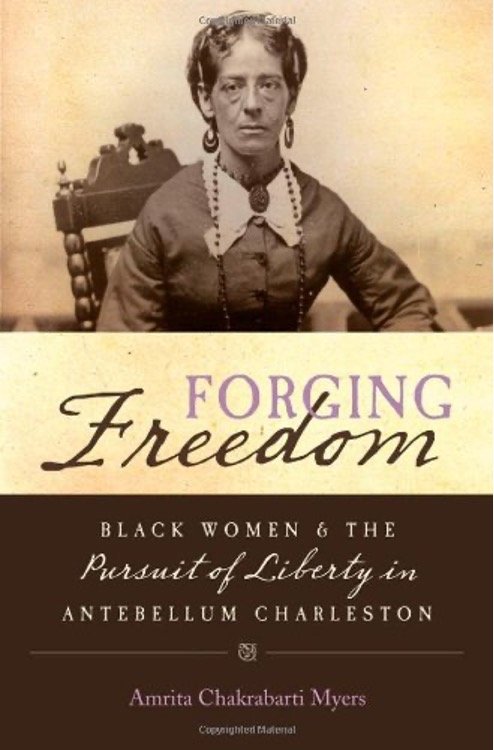Amrita Chakrabarti Myers
Author of
The Vice President’s Black Wife: The Untold Life of Julia Chinn (Ferris and Ferris, 2023)
Forging Freedom: Black Women and the Pursuit of Liberty in Antebellum Charleston (University of North Carolina Press, 2011)
Amrita Chakrabarti Myers is the Ruth N. Halls Associate Professor of History and Gender Studies at Indiana University-Bloomington. She earned her doctorate in U.S. History from Rutgers University and specializes in Black Women’s History in the Slave South. A Consulting Editor with the Journal of American History, Myers is also a committed activist, both on and off campus. She is regularly interviewed by media outlets ranging from PBS to NPR to Fox News on issues of race and gender justice and has published editorials and articles on policing, anti-Blackness, and racism writ large in the Washington Post and the Louisville Courier-Journal. Her first book, Forging Freedom: Black Women and the Pursuit of Liberty in Antebellum Charleston, was published by The University of North Carolina Press in 2011 and received several book awards including the 2012 Julia Cherry Spruill Book Prize from the Southern Association of Women Historians and the 2011 Anna Julia Cooper-C.L.R. James Book Prize from the National Council for Black Studies. Her second book, The Vice President’s Black Wife: The Untold Life of Julia Chinn, will be published by Ferris and Ferris Books in 2023.
Books by Amrita
The Vice President’s Black Wife: The Untold Life of Julia Chinn is a chronicle of the union of Julia Ann Chinn, an enslaved woman, and Richard Mentor Johnson, a Kentucky politician who became Vice President of the United States in 1837.
Forging Freedom: Black Women and the Pursuit of Liberty in Antebellum Charleston (University of North Carolina Press, 2011)
For Black women in antebellum Charleston, freedom was not a static legal category but a fragile and contingent experience. In this deeply researched social history, Amrita Chakrabarti Myers analyzes the ways in which Black women in Charleston acquired, defined, and defended their own vision of freedom. Drawing on legislative and judicial materials, probate data, tax lists, church records, family papers, and more, Myers creates detailed portraits of individual women while exploring how Black female Charlestonians sought to create a fuller freedom by improving their financial, social, and legal standing. Examining both those who were officially manumitted and those who lived as free persons but lacked official documentation, Myers reveals that free Black women filed lawsuits and petitions, acquired property (including enslaved laborers), entered into contracts, paid taxes, earned wages, attended schools, and formed familial alliances with wealthy and powerful men, Black and white--all in an effort to solidify and expand their freedom. Never fully free, Black women had to depend on their skills of negotiation in a society dedicated to upholding both slavery and patriarchy. Forging Freedom examines the many ways in which Charleston’s Black women crafted a freedom of their own design instead of accepting the limited existence imagined for them by white Southerners.






